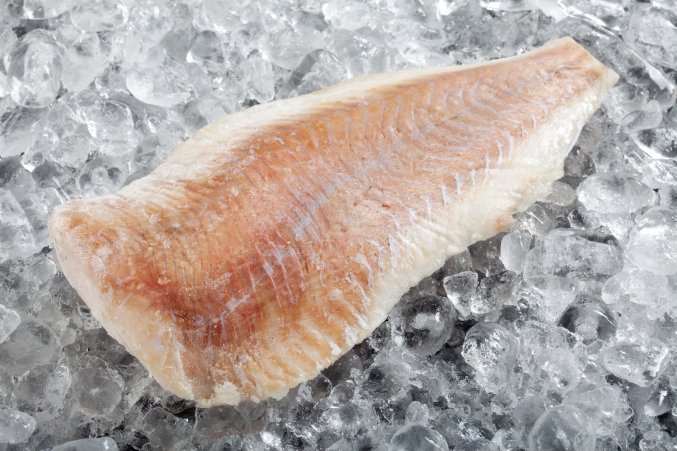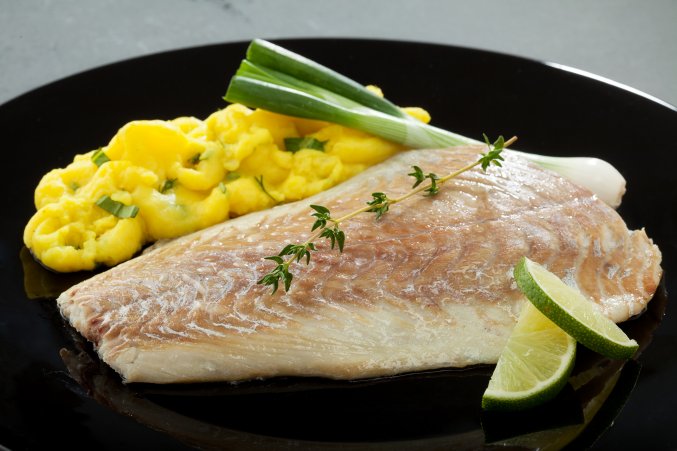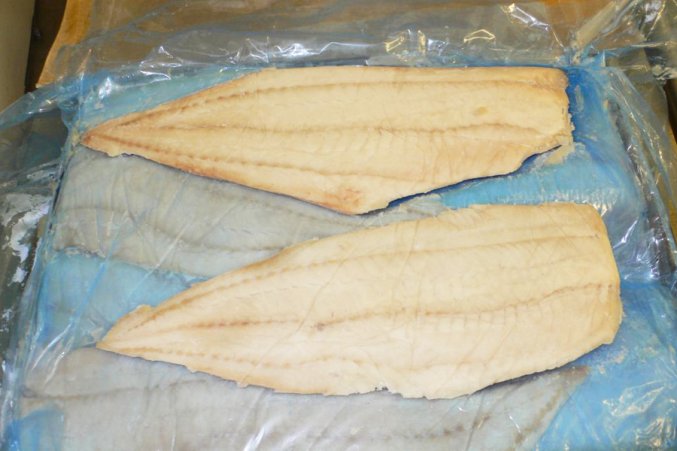Saithe Fillets
Saithe is a member of Gadidae family, originated from North Atlantic and it has a big market share when compared to other codfish types. They live in the deep waters of Atlantic. They migrate to deep waters in winter and caught by purse seine, trawl or longlines.
They are characterized with green-brown color on their backs. They can reach to 130 cm. Its meat is yellowish and very tasty. Its fat rate is low and protein rate is very high.
Saithe gains its place in the market as especially frozen at sea, so there is a different weight unit as "oz (ounce)". 1 oz is equal to 28,35 gr.
Product Description
|
Product name |
Denizer Deep Frozen Saithe Fillets 27 kg |
|
Latin name |
Pollachius virens |
|
External barcode |
8680539201509 |
|
Internal barcode |
8680539201516 |
|
Size |
3-5 oz, 5-8 oz, 8-16 oz, 16-32 oz, 32+ oz |
Product description
|
After catching, saithe is graded on board, cleaned of head, innards, bones and skin. After filleting the product is packed as interleaved and freezed immediately. |
|
Freezing type |
BQF (Block Quick Freezer) |
|
Packing type |
3x9 kg interleaved pack |
|
Ingredients |
Saithe fillets (%100) |
|
Production type |
Farmed / Catch √ (FAO : 27 ) / Value added |
|
Origin |
Iceland |
|
Units per package |
- |
|
Glazing rate |
0% |
|
Product type |
Boneless, PBI, skinless fillets |
|
Broken pieces |
1-2 pcs / 27 kg |
|
Appearence |
Brownish-yellow meat, specific appearence |
|
Smell |
Specific smell |
|
Taste |
Specific, not bitter or sour, natural taste |
|
Texture |
Strict, not dry |
|
Average weight |
3-5 oz: 112 g 5-8 oz: 200 g x8-16 oz: 340 g 5-8 oz: 200 g 16-32 oz: 680 g 32+ oz: 890 g |
|
Shelf life |
After production date, first 24 months |
|
Additives |
No chemical |
|
Outer package |
Original printing microwave corrugated cardboard box (PAP) (36x45x19 cm) |
|
Inner package |
PAP Inner box and PE inner bag |
Packing criteria
|
The total migration value of components of plastic substances and materials to foodstuff, per square decimeter surface area of substance or material can not be more than 10 mgs. This value is defined as the limit of total migration of plastic substance and materials (mg/dm2). |
Storage conditions
|
Should transport and storage at min -18°C. Transportation should be without contamination and complete with no break of cold chain. |
Nutrition facts
|
Energy (kcal/100 g) |
81 |
|
Fat (g/100 g) |
0,3 |
|
Protein (g/100 g) |
19,3 |
|
Cholesterol (mg/100g) |
71 |
|
Na (mg/100g) |
40 |
|
Carbonhydrate (mg/100g) |
0 |
|
Vit A (%/100 g) |
3 |
|
Vit C (%/100 g) |
0 |
|
Ca (%/100 g) |
1 |
|
Fe (%/100 g) |
8 |
|
Omega 3 (g/100 g) |
0,009 |
Chemical Parameters
|
Hg (mg/kg) |
0,5 |
|
Cd (mg/kg) |
0,05 |
|
Pb (mg/kg wet weight) |
0,3 |
|
Total max dioxins (pg/g wet weight) |
3,5
|
|
Total max dioxins and dioxin like PCBs (pg/g wet weight) |
6,5
|
|
Total PCB28, PCB52, PCB101, PCB138, PCB153 and PCB180 (ng/g wet weight) |
75
|
Microbiological Parameters
|
Histamin (mg/kg) |
200-400 |
|
Salmonella spp(g-ml) |
0/25 |
|
Listeria monocytogenes (g-ml) |
0/25 |
Legal Criteria
|
GKGM Regulation on water intended for human consumption |
|
GKGM Regulation on microbiological criteria |
|
GKGM Regulation on contaminants |
|
GKGM Regulation on labelling |
|
GKGM Regulation on packaging waste control |
|
GKGM Statement of plastic materials in contact with foodstuffs |
|
Turkish Food Codex Regulation |
Determination of Net Weight
|
Apparatus |
|
For packages up to 5 pounds (2.27 kg), use scale of adequate capacity with sensitivity of 0.01 oz. (0.28 g). |
|
For packages over 5 pounds (2.27 kg), use scale of adequate capacity with sensitivity of 0.025 oz. (0-71 g). |
|
Procedure |
|
Set scale on firm support and level. Adjust 0 load indicator or rest point and check sensitivity. Remove package from low temperature storage, remove frost and ice from outside of package, and weigh immediately (W). Open package; remove contents, including any product particles and frost crystals. Air-dry empty package at room temperature and weigh (E). Weight of contents=W-E. |
|
*Acc to AOAC offical method 963.26 net contents of frozen food containers-unglazed foods |
Spawning
|
Jan |
Feb |
Mar |
Apr |
May |
Jun |
Jul |
Aug |
Sep |
Oct |
Nov |
Dec |
|
X |
X |
X |
|
|
|
|
|
|
|
|
|






